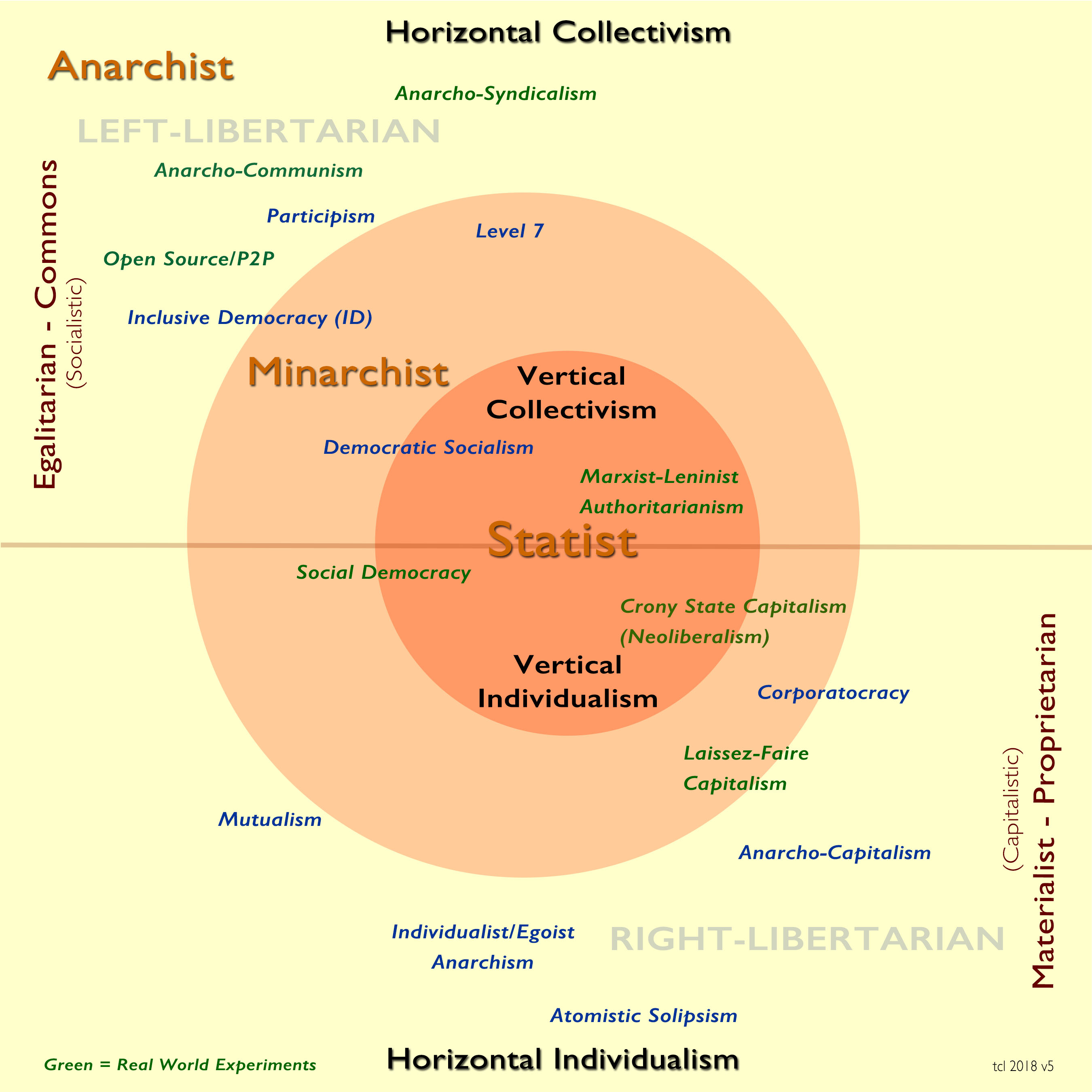While I think the state should own natural recourses I believe your average factory or company should maybe be worker-operated. Would that stop the harmful practices of capitalism?
Posted by T.Collins Logan on
Thank you for the question.
There are many ways to mitigate the harmful practices of capitalism. There have been the injections of socialist ideals into mixed economies (you can read more about this here: How Socialist Contributions to Civil Society Saved Capitalism From Itself). There have been left-anarchist experiments — see List of anarchist communities - Wikipedia. There have been authoritarian communist experiments (U.S.S.R., China, etc.) which have drawn a lot of criticism, mainly because they haven’t been very democratic, and have been equally exploitative — a sort of “state capitalism” run amok. There have also been what Elinor Ostrom called “common pool resource management” arrangements that have worked well for managing the commons (see Ostrom Design Principles). And there have been many additional proposals as well that offer an alternative political economy (here is my own: L e v e l - 7 Overview).
In many of these experiments, some combination of worker-ownership (of the means of production) and public ownership of natural resources (e.g. the commons) have been in play. The challenge, though, is that when these systems are competing with capitalism — or embedded inside global capitalism and subjugated to it — the negative externalities of the global capitalist system are still wreaking havoc on people’s lives, on the environment, and on the planet as a whole. Growth-dependent industrial capitalism is simply too caustic and destructive to continue at such a large scale.
I personally am not a fan of “statist” solutions (see graphic below), and would rather see democratic institutions thrive in a more horizontally collective way. Any concentrations of power end up also concentrating wealth and privilege…that is just how humans get corrupted. Without strong democratic institutions participating in all decisions — at every level — there will always be those who game the system to their own advantage, and to the detriment of everyone else. So diffusion of power and diffusion of wealth must go hand-in-hand (this is why right-libertarian solutions will never work, and why statist governments tend to get “captured” by special interests).
The last issue is that of private property itself, which tends to undermine both personal and collective liberty, and a strong civil society. I’ll offer two essays regarding this:
Private Property as Violence: Why Proprietarian Systems are Incompatible with the Non-Aggression Principle
and
The Goldilocks Zone of Integral Liberty: A Proposed Method of Differentiating Verifiable Free Will from Countervailing Illusions of Freedom
I hope this was helpful.

There are many ways to mitigate the harmful practices of capitalism. There have been the injections of socialist ideals into mixed economies (you can read more about this here: How Socialist Contributions to Civil Society Saved Capitalism From Itself). There have been left-anarchist experiments — see List of anarchist communities - Wikipedia. There have been authoritarian communist experiments (U.S.S.R., China, etc.) which have drawn a lot of criticism, mainly because they haven’t been very democratic, and have been equally exploitative — a sort of “state capitalism” run amok. There have also been what Elinor Ostrom called “common pool resource management” arrangements that have worked well for managing the commons (see Ostrom Design Principles). And there have been many additional proposals as well that offer an alternative political economy (here is my own: L e v e l - 7 Overview).
In many of these experiments, some combination of worker-ownership (of the means of production) and public ownership of natural resources (e.g. the commons) have been in play. The challenge, though, is that when these systems are competing with capitalism — or embedded inside global capitalism and subjugated to it — the negative externalities of the global capitalist system are still wreaking havoc on people’s lives, on the environment, and on the planet as a whole. Growth-dependent industrial capitalism is simply too caustic and destructive to continue at such a large scale.
I personally am not a fan of “statist” solutions (see graphic below), and would rather see democratic institutions thrive in a more horizontally collective way. Any concentrations of power end up also concentrating wealth and privilege…that is just how humans get corrupted. Without strong democratic institutions participating in all decisions — at every level — there will always be those who game the system to their own advantage, and to the detriment of everyone else. So diffusion of power and diffusion of wealth must go hand-in-hand (this is why right-libertarian solutions will never work, and why statist governments tend to get “captured” by special interests).
The last issue is that of private property itself, which tends to undermine both personal and collective liberty, and a strong civil society. I’ll offer two essays regarding this:
Private Property as Violence: Why Proprietarian Systems are Incompatible with the Non-Aggression Principle
and
The Goldilocks Zone of Integral Liberty: A Proposed Method of Differentiating Verifiable Free Will from Countervailing Illusions of Freedom
I hope this was helpful.

